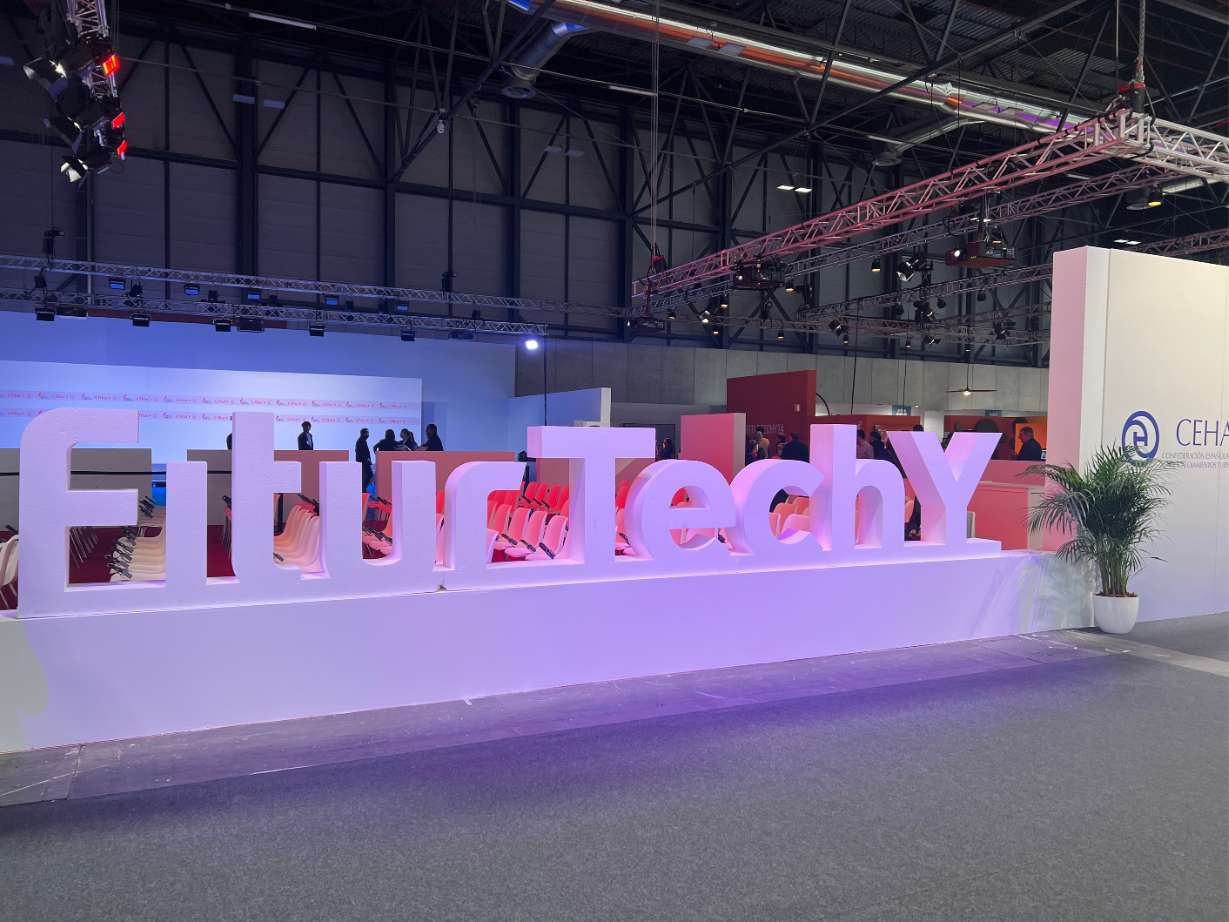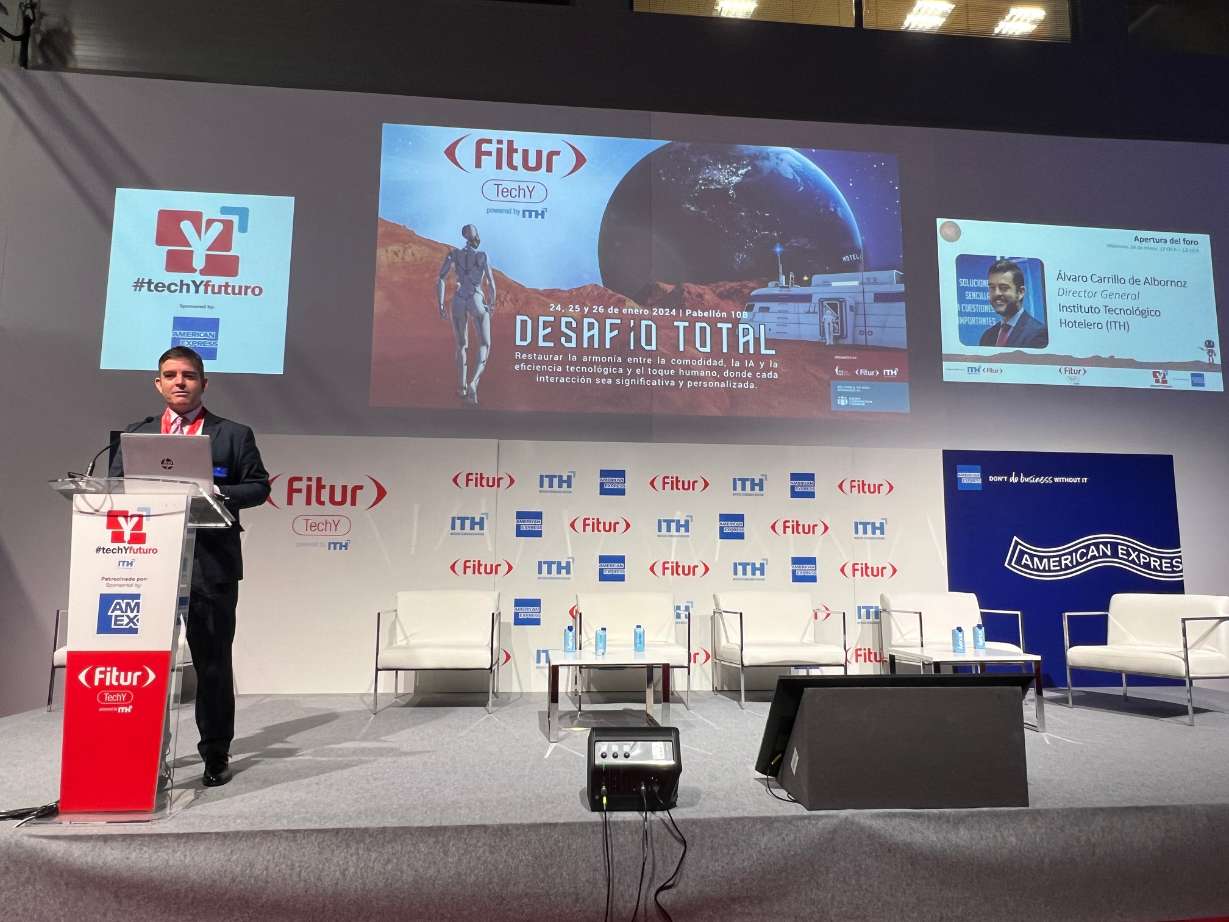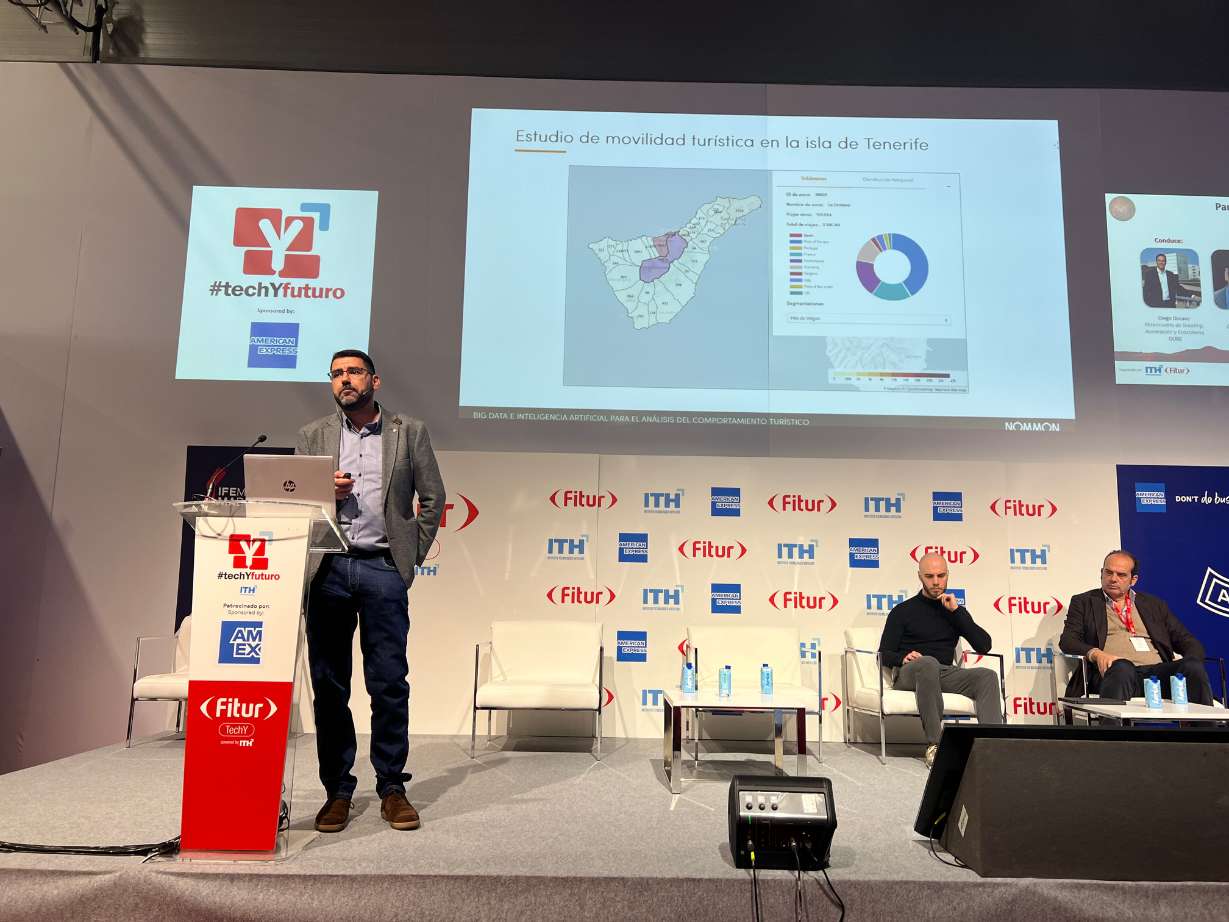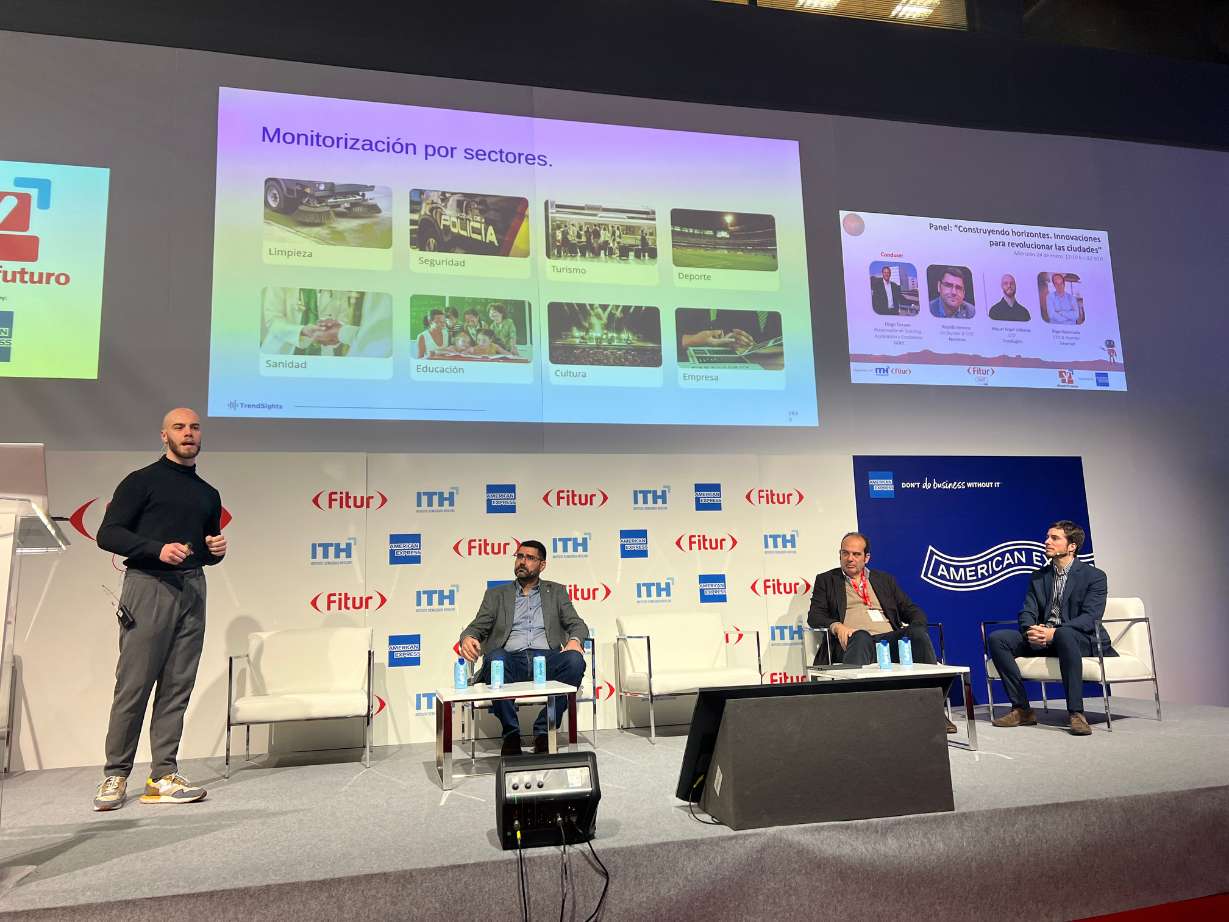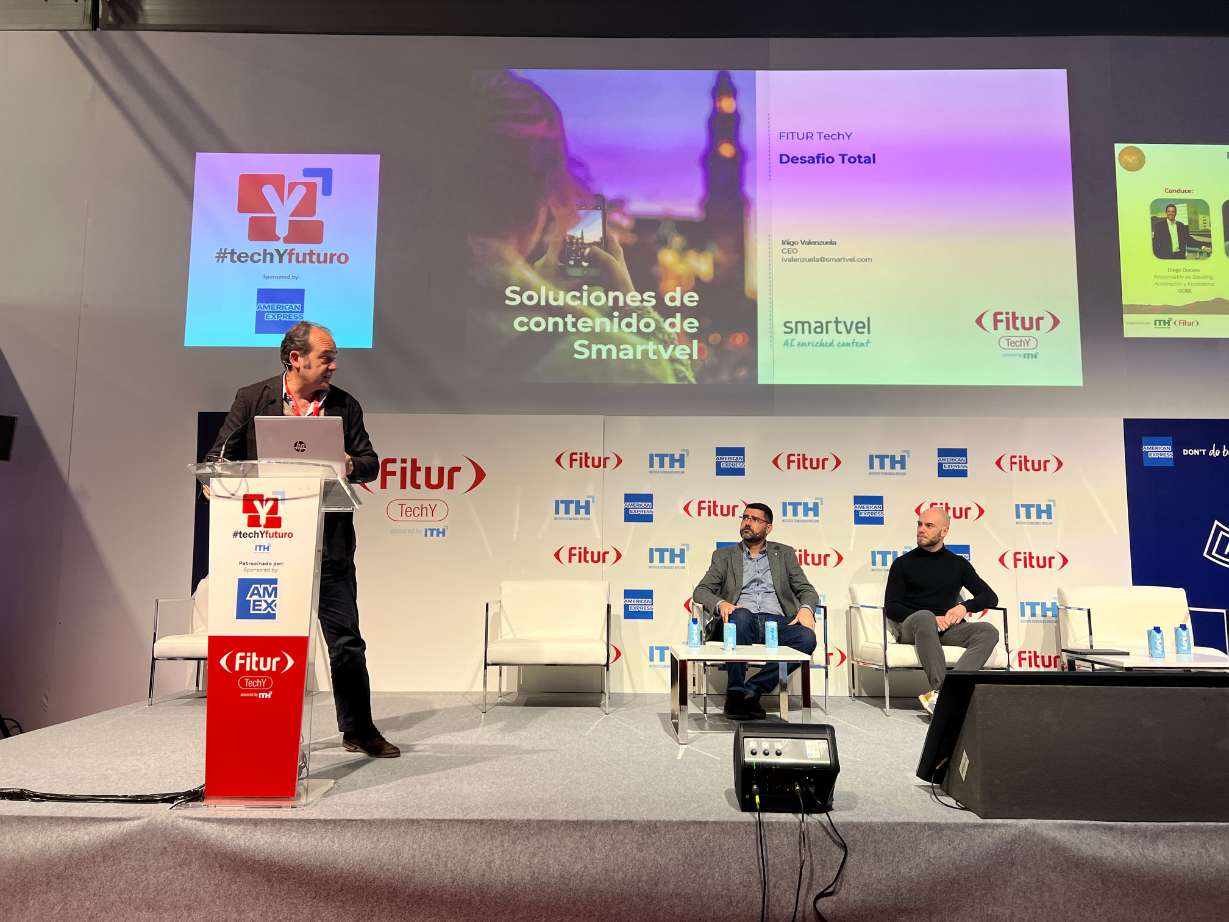Nommon participates in FiturTechy, the space at FITUR dedicated to technology, innovation, and sustainable tourism
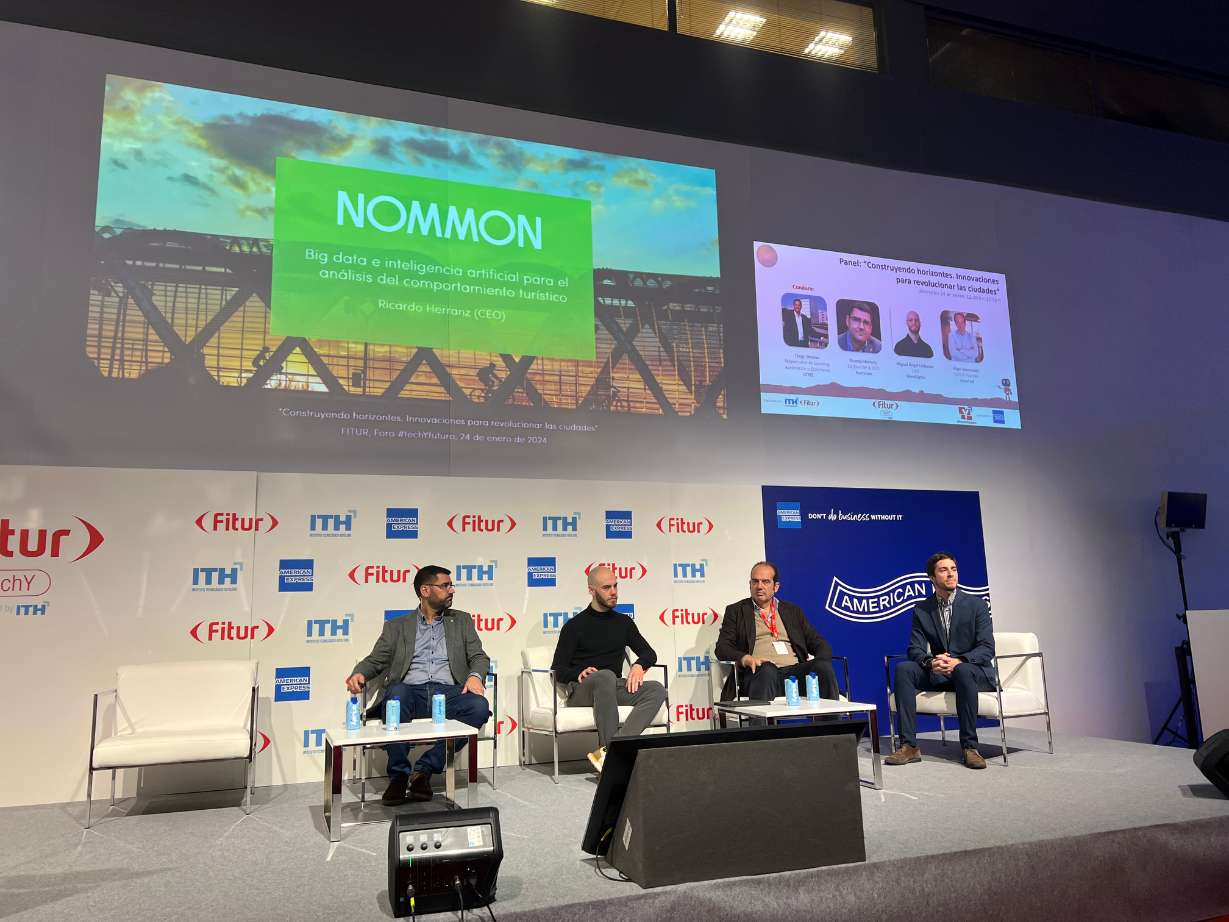
Ricardo Herranz, CEO of Nommon, participated in the panel “Building Horizons: Innovations to Revolutionise Cities.”
On January 24th, the 44th edition of the International Tourism Fair, FITUR 2024, kicked off at Ifema, Madrid. The event began with the inauguration of the FiturTechy space, organised by the Instituto Tecnológico Hotelero (ITH), dedicated to showcasing and discussing the latest technological trends in the tourism sector. This year’s theme was “Total Recall,” inspired by the 1990 American science fiction film, to allude to new experiences that challenge and redefine the industry. Nommon participated in the first panel of this forum, in the session “Building Horizons: Innovations to Revolutionise Cities.” Ricardo Herranz, CEO of Nommon, shared the stage with Miguel Ángel Liébanas, from TrendSights, and Íñigo Valenzuela, from Smartvel. Diego Docavo, from Gobe Studio, moderated the debate, focusing on the potential of new data sources to understand and predict trends, the role of artificial intelligence, and the importance of bringing these technologies to the public sector to promote initiatives for sustainable cities.
Ricardo Herranz presented Nommon’s two solutions for the tourism sector, Mobility Insights and Population Insights. Through the analysis of anonymised data from mobile networks and other data sources, these solutions provide mobility patterns (Mobility Insights) and dynamic population maps, floating population statistics, visitor attendance data, and other customisable indicators of presence and activity (Population Insights). The information from these solutions answers questions such as the number of visitors in a tourist destination, where do they come from, the most visited places in the city, the time of day these landmarks are visited, or the impact of tourist mobility on the transport systems or that of a specific event on tourist attraction. Ricardo Herranz presented several projects where these solutions have been applied, including the study of visitors at the Guadarrama National Park, the analysis of tourist behaviour in Marbella and Benalmádena, the study of tourist mobility in Tenerife, and the analysis and prediction of tourist affluence in different areas of the city of Madrid.
The panel concluded with a debate on the importance of public initiatives to bring digital solutions to cities through various pilots and projects. These initiatives generate knowledge and address social and cultural challenges associated with tourism, such as gentrification, sustainable management to minimise environmental impact, and demand forecasting to ensure a positive experience for residents and tourists.
